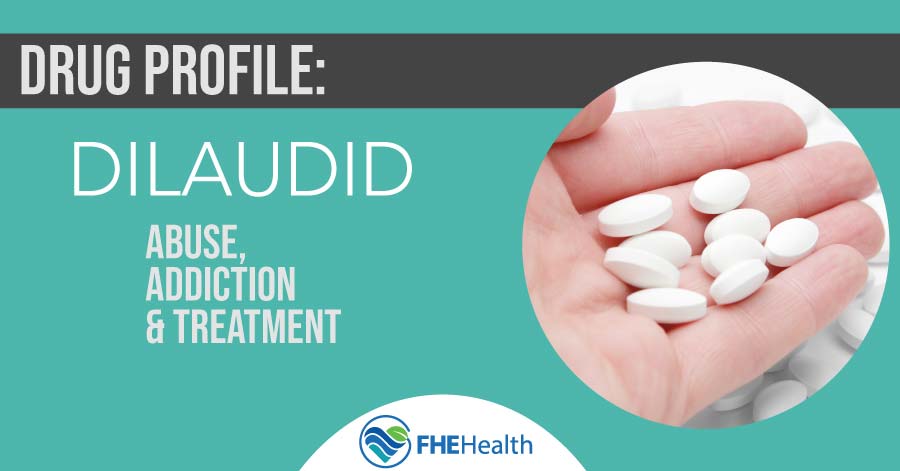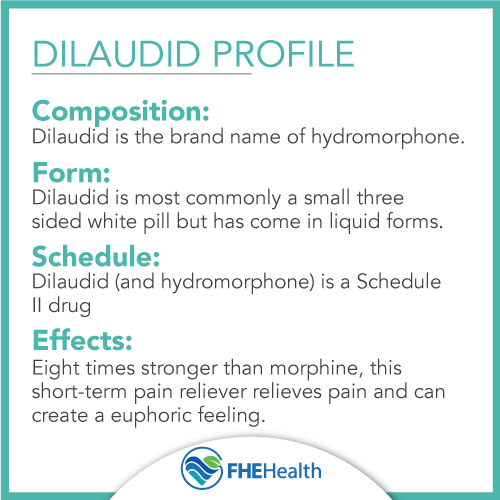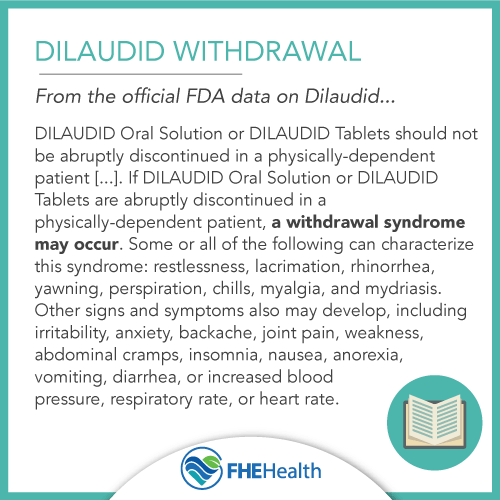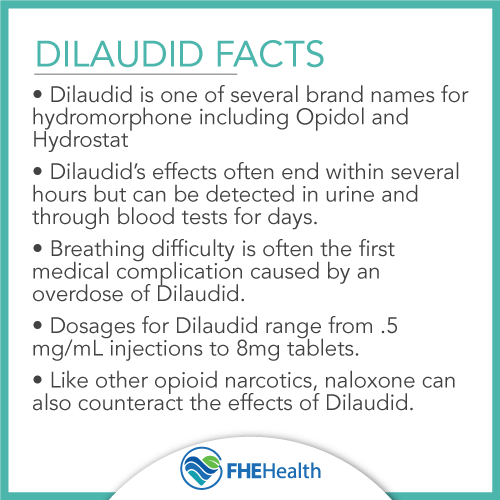
Dilaudid Information
Dilaudid is a derivative of morphine that has been clinically available since the 1920s. It was manufactured in Germany when the country was seeking pain medications that had fewer side effects and health risks.
Its potency is two to eight times greater than morphine but has a shorter effect time. Known in many parts of the world by different brand names, including Hydal, dimorphone, Hydrostat and Opidol, hydromorphone is listed as a Schedule II controlled substance.
In 2009, Ohio approved the use of hydromorphone combined with midazolam as a backup means for carrying out executions when a vein cannot be found for intravenous injections. In 2014, this combination was used on Joseph Wood in Arizona. It took almost two hours for death to occur.
What Is Dilaudid?
 Most commonly referred to in illicit use as dust, juice, smack or footballs, Dilaudid is a small round or three-sided pill that comes in varying strengths and colors depending on the manufacturer. It is also available in an oral solution, as a rectal suppository and is injectable by dissolving the tablets into a solution.
Most commonly referred to in illicit use as dust, juice, smack or footballs, Dilaudid is a small round or three-sided pill that comes in varying strengths and colors depending on the manufacturer. It is also available in an oral solution, as a rectal suppository and is injectable by dissolving the tablets into a solution.
Dilaudid is the brand name for the generic chemical hydromorphone. This opioid is best used for short-term pain or in cases where recovery from disease isn’t possible.
Dilaudid may be used to treat severe back pain; however, it’s often used as a last resort for this condition or for patients who have had back surgery. Other typical uses for Dilaudid include:
- Chest pain
- Pancreatitis
- Nerve pain
- Hospice care
- Stomach pain
How Does Dilaudid Work?
Dilaudid works on the brain much the same way that morphine does, by activating central nervous receptors to limit a person’s perception of pain. As a result, it increases pain tolerance while creating a euphoric effect.
In pill form, Dilaudid starts working within 30 minutes, and when injected, it takes approximately five minutes for it to kick in. The medication has a diminished effect after its been in your system for a few hours, but it shows up on blood and urine tests for several days after the drug completely wears off.
Like most opioids, Dilaudid creates feelings of euphoria, relaxation, sedation and may also reduce feelings of anxiety. Individuals taking the medication may experience changes in mood, increased nervousness and feelings of restlessness. In some cases, symptoms may include changes in blood pressure, rapid heart rate, loss of coordination and mental clouding.
Dilaudid Addiction
 Morphine derivatives like hydromorphone often produce the same euphoric rush that users feel when taking IV heroin. Many of the tablets are time-release formulas, but crushing the pills and dissolving them into a liquid solution may lead to an immediate rush, especially when the medication is taken with alcohol.
Morphine derivatives like hydromorphone often produce the same euphoric rush that users feel when taking IV heroin. Many of the tablets are time-release formulas, but crushing the pills and dissolving them into a liquid solution may lead to an immediate rush, especially when the medication is taken with alcohol.
 The first step in treatment for opioid addiction is getting help. At FHE Health, we can ensure you have the help you need to get through the entire treatment and recovery process. Utilizing a specially trained medical staff provides you with the greatest hope for treatment and recovery.
The first step in treatment for opioid addiction is getting help. At FHE Health, we can ensure you have the help you need to get through the entire treatment and recovery process. Utilizing a specially trained medical staff provides you with the greatest hope for treatment and recovery.





